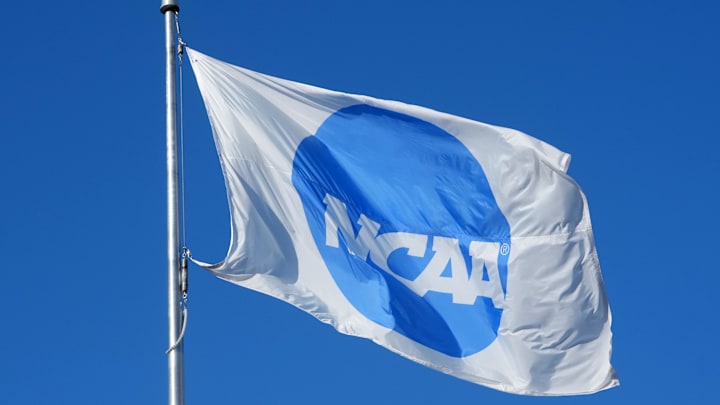The NCAA just hit the brakes on its most significant sports betting shift yet.
After briefly moving toward allowing college athletes and athletic department staff to bet on professional sports, Division I schools have voted to rescind that rule change — keeping the long-standing ban fully in place.
The reversal comes at a time when sports gambling is booming nationally — and when betting-related scandals are creeping closer to college locker rooms.
How the Rule Change Fell Apart
The proposal would have allowed athletes and athletics staff to wager on professional sports only, while keeping bets on college games and sharing inside information strictly off-limits.
Initially, the change was set to take effect Nov. 1, then delayed to Nov. 22 after vocal pushback from leaders including SEC commissioner Greg Sankey and others concerned about integrity optics.
Because the rule had passed with less than 75% support, Division I schools were given a 30-day window to overturn it. They did exactly that — more than two-thirds voted to rescind the change before the deadline, meeting the threshold to kill it.
The result: NCAA athletes and athletic department personnel are still barred from betting on any sport in which the NCAA sponsors a championship, including professional leagues, across Divisions I, II and III.
Betting Scandals Turn Up the Pressure
The timing is no accident.
In the last month, a series of high-profile cases has undercut any momentum toward loosening gambling rules:
- A federal investigation led to the arrests of more than 30 people, including Portland Trail Blazers coach Chauncey Billups, Miami Heat guard Terry Rozier and former NBA player Damon Jones, tied to alleged illegal betting activity.
- An NCAA probe found former Temple guard Hysier Miller placed bets on and against his own team, triggering harsh sanctions and reinforcing fears about integrity breaches when players wager on games they can influence.
- The NCAA recently revoked eligibility for six men’s basketball players over sports betting violations, signaling a tougher enforcement climate even as legal gambling expands nationwide.
AP News
In that environment, allowing athletes to bet on pro sports — even with college betting still banned — became a tougher sell. For many administrators, drawing a hard line was simpler than managing more gray area.
Integrity Over Flexibility
The push for the original rule change reflected a growing reality: most states now allow legal sports betting, and many athletes are already surrounded by it in everyday life. NCAA leaders initially considered that a reason to modernize, not just police.
But the backlash from key conferences, combined with betting cases directly touching college programs, swung opinion back toward caution. Division I schools ultimately decided that any perceived relaxation — even just on pro leagues — might undermine public trust in college results.
By rescinding the rule, the NCAA kept its message simple: no betting, period, for athletes and athletic department staff.
The irony is that the rest of the sports world is moving in the opposite direction, with pro leagues and media partners leaning heavily into gambling content and partnerships. College sports, at least for now, is recommitting to being the outlier.
What It Means Going Forward
Practically, not much changes day-to-day — the rules revert to what they were before the brief flirtation with reform:
Athletes and covered staff still cannot place legal or illegal wagers on pro or college sports in NCAA-championship sports.
They also cannot provide inside information to bettors or sportsbooks.
Symbolically, though, the decision sends a clear signal: in an era where NIL money, revenue-sharing and transfer freedom have made college sports feel more professional than ever, the NCAA is drawing a line on gambling.
With betting scandals already testing that line, schools decided they’d rather not blur it further.
